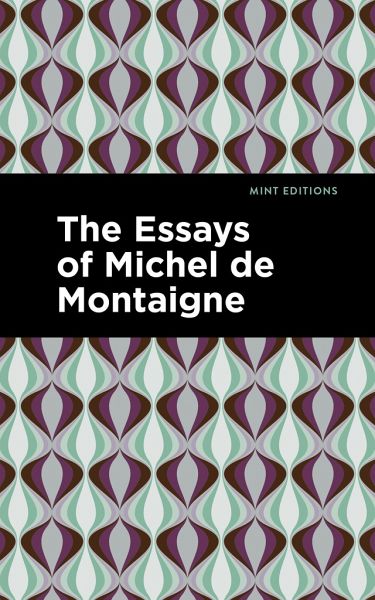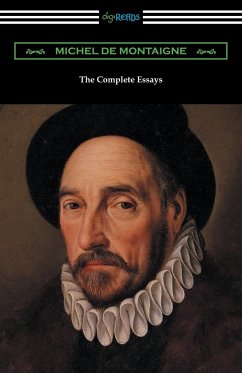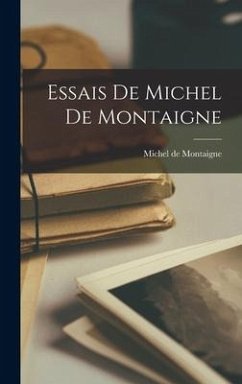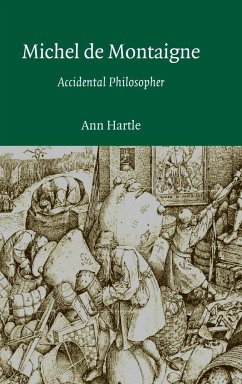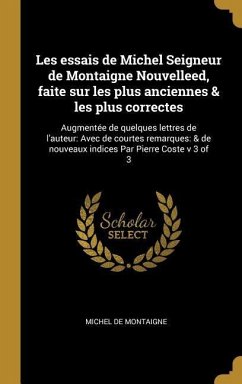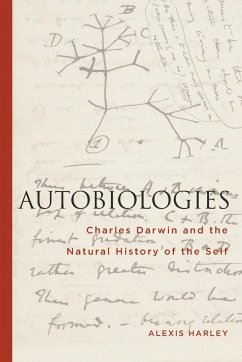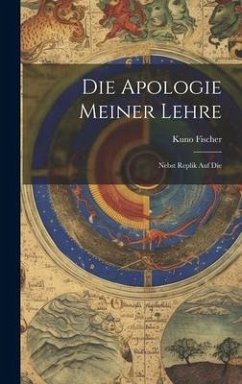Michel de Montaigne (1533-1592) was a French philosopher, essayist, and statesman. Born in Aquitaine at the Château de Montaigne, he was raised in a wealthy and powerful family with Spanish, Portuguese, and Sephardic Jewish ancestry. Educated by tutors from his father's humanist circle, he went on to study under Latin scholar George Buchanan at the College of Guienne in Bordeaux. After completing a law degree, he was appointed counselor of the Parlement in Bordeaux and from 1561 to 1563 served as a courtier to Charles IX. After retiring from public life in 1871, he began working on his celebrated Essais (1580). Believed to be inspired by the loss of his dear friend Étienne de La Boétie, a prominent humanist and poet of the French Renaissance, the Essais contain Montaigne's reflections on literature, the classics, philosophy, human nature, and selfhood. Considered a landmark work of pre-Enlightenment French philosophy, Montaigne's magnum opus both popularized the essay as a literary form and influenced a wide range of Western thinkers, including William Shakespeare, René Descartes, Blaise Pascal, Ralph Waldo Emerson, Karl Marx, Sigmund Freud, and Friedrich Nietzsche.
